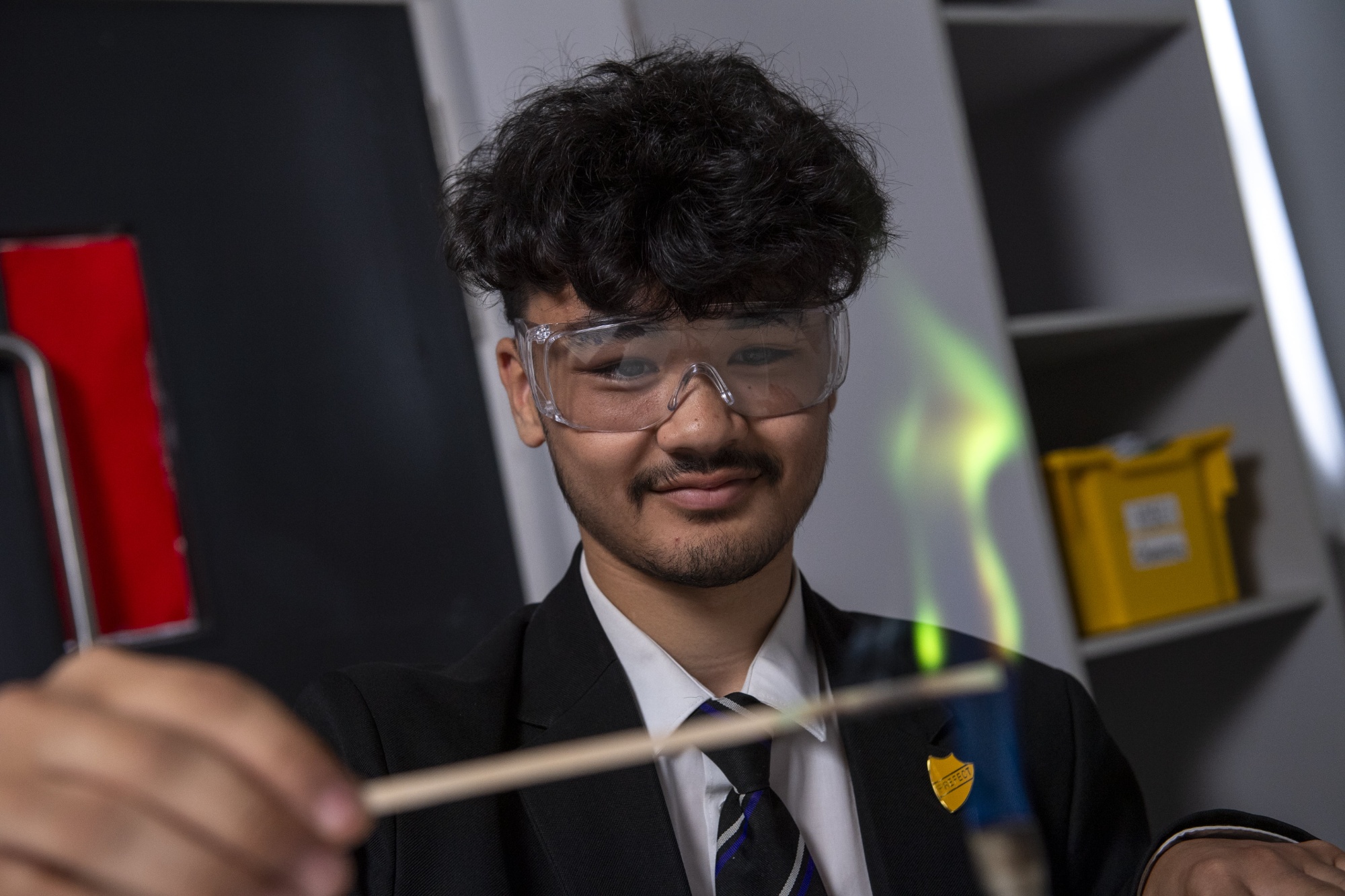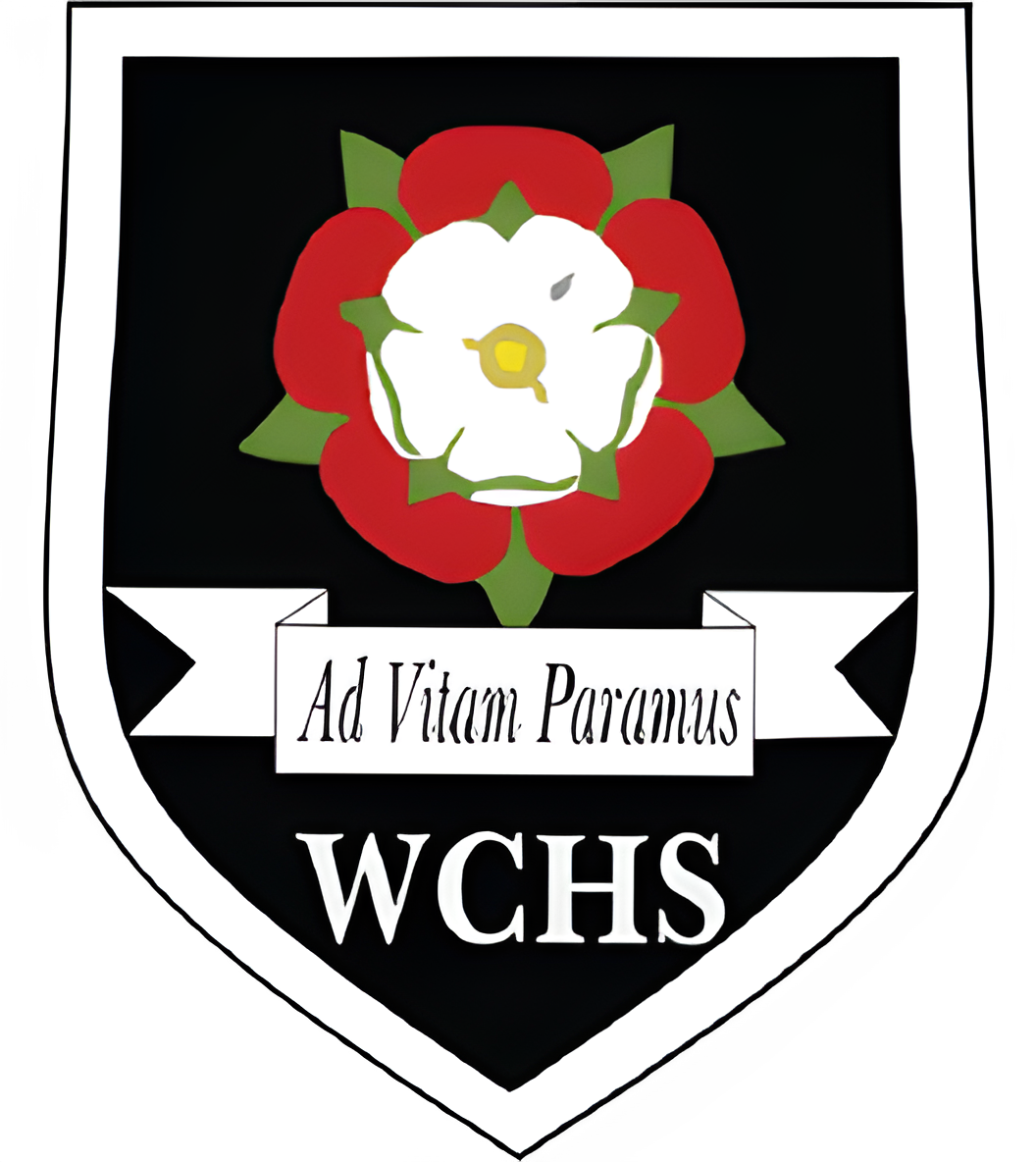Science

Key Stage 3
The Key Stage 3 curriculum is designed to engage our students with the wonderful world of science from the moment they join us in Year 7, through to Year 9. Our curriculum contains a wide variety of activities, including exciting practical activities, scientific investigations, and theory-based lessons. Our enthusiastic staff team strive to equip our students with the key skills required to work scientifically, as well as ensuring a sound understanding of the most fundamental of concepts in science. Therefore, ensuring that they have the foundations firmly laid in place to start their Key Stage 4 journey towards their GCSE’s.
Students complete a topic from each discipline (biology, chemistry, and physics) every term. Each topic typically lasts between 2-3 weeks and there is a short assessment at the end of each one.
In addition to the end-of-topic assessments students are assessed at the end of the academic year.
All students should ensure that they bring a pen, pencil, ruler, rubber and calculator to all Science lessons. Students are expected to have their own equipment and it will not always be possible to loan equipment.
To view details of the Key Stage 3 specification, please click here
Year 7
Secondary science begins with a “Welcome to Science” topic during which our students find their way around a lab, get hands on and learn some essential practical and enquiry skills to equip them on their science journey through years 7 to 11.
Year 7 then move on to subjects from the three disciplines, biology, chemistry and physics, enabling them to grasp some of the key concepts that will run through the big ideas covered in their secondary science education. In biology students will learn about cells, structure and function of biological systems and reproduction. In chemistry – elements, atoms and compounds, separation techniques and chemical reactions. In physics – particles, forces and space.
Through the use of practical work throughout these topics, students will continue to build their understanding of common laboratory equipment, hone essential enquiry skills and grow in confidence as young scientists.
Year 8
Year 8 builds on the scientific grounding the students have gained in year 7. This enables students to study topics which require a greater depth of understanding. Biology topics include a healthy lifestyle, and ecosystems. Chemistry looks at the periodic table, structure of the earth and rocks. Physics topics cover sound, energy, light, electricity and magnetism.
As students already have a grounding in basic experimental procedures, more complex practical work is involved and students are taught the importance of evaluating the effectiveness of their method and the validity of their results.
Year 9
Year 9 acts as a gateway to GCSE studies with students taking on more in depth topics and making complex links within concepts from the foundations laid in years 7 and 8. This requires students to retrieve knowledge from the past two years whilst also introducing fundamental concepts in all three disciplines which are essential for GCSE studies. In biology students learn about how different systems interact in humans, before revisiting the topic of cells to a greater depth of understanding and the linking this into the topic of bioenergetics. In chemistry, students learn about some more complex chemical reactions and reactivity before a deeper look at atomic structure and the periodic table, they then apply this knowledge to the topic of bonding. In physics students learn about how forces apply to everyday life, before refreshing and deepening their knowledge on particles, then applying this knowledge to the topic of atomic structure and radiation.
Key Stage 4
Our KS4 builds on the fundamentals embedded during KS3, delving into the more complex and even more fascinating processes and phenomena. We have 2 Science courses available, both provided by AQA.
The majority of students in Years 10 & 11 will follow the Trilogy Science course. Students completing this course will gain two combined GCSEs which will reflect the student’s overall performance across the disciplines of Biology, Chemistry and Physics.
A smaller number of students will follow the Triple Science course. These students will study the same content as the Trilogy Science students, but to a greater and broader depth, as well as covering some more challenging concepts. Students completing this course will gain three GCSEs which will reflect the student’s individual performances in the separate disciplines of Biology, Chemistry and Physics. This is particularly valuable for students aiming for a career or course in a particular area of science.
Learning Journeys
Year 7 Science Learning Journey
Year 8 Science Learning Journey
Year 9 Science Learning Journey
Year 10 Science Learning Journey
Year 11 Science Learning Journey
For further information about our Science curriculum, please contact Mrs A Scott, Head of Science, by emailing ascott@westcraven.co.uk or phoning the main office to arrange a call back.
